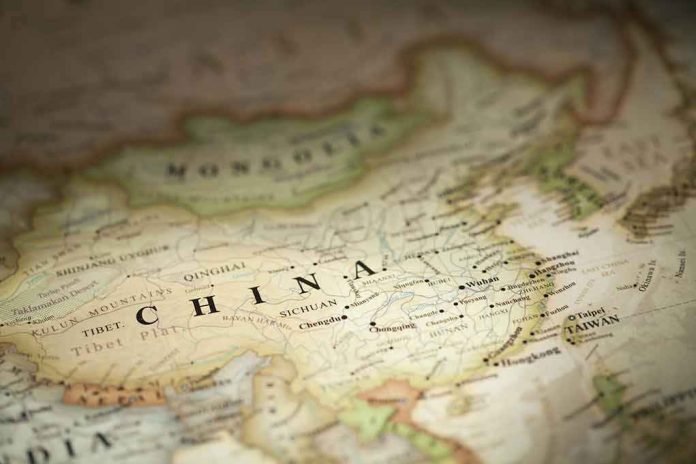
China has declared it will “fight to the end” against the United States in an escalating trade war after President Trump announced devastating 100 percent tariffs on Chinese goods.
Story Snapshot
- Trump announced 100% tariffs on Chinese goods, doubling current trade penalties
- China responded with aggressive “fight to the end” rhetoric, signaling no backing down
- Trade war escalation threatens to impact American consumers and global markets
- Trump’s hardline approach fulfills campaign promises to get tough on China
Trump Doubles Down on China Trade Penalties
President Trump announced Friday his intention to impose 100 percent tariffs on Chinese goods, marking a dramatic escalation in the ongoing trade dispute between the world’s two largest economies. The move represents a doubling of existing trade penalties and signals the administration’s commitment to confronting China’s unfair trade practices. This aggressive stance fulfills Trump’s campaign promises to prioritize American economic interests over globalist trade policies that have historically benefited China at America’s expense.
Beijing Issues Defiant Response to American Pressure
China’s government responded Tuesday with bellicose rhetoric, declaring its readiness to “fight to the end” against American trade measures. This confrontational stance demonstrates Beijing’s unwillingness to negotiate fairly or address longstanding trade imbalances that have cost American jobs and weakened domestic manufacturing. The Communist regime’s defiant response reveals its true intentions to maintain exploitative trade relationships rather than engage in mutually beneficial commerce that respects American sovereignty and economic interests.
Economic Warfare Threatens Global Stability
The escalating trade conflict between America and China threatens to reshape global economic relationships and potentially impact American consumers through higher prices on imported goods. However, Trump’s tough stance addresses decades of Chinese currency manipulation, intellectual property theft, and unfair trade practices that previous administrations allowed to continue unchecked. This confrontation, while potentially costly in the short term, aims to restore fair trade relationships that protect American workers and industries from predatory foreign competition.
The trade war represents a fundamental shift from the globalist policies of previous administrations that prioritized international cooperation over American economic sovereignty. Trump’s willingness to engage in this economic confrontation demonstrates his commitment to putting America first, even when facing aggressive pushback from the Chinese Communist Party and criticism from globalist interests who benefit from the current unbalanced trade relationship.


